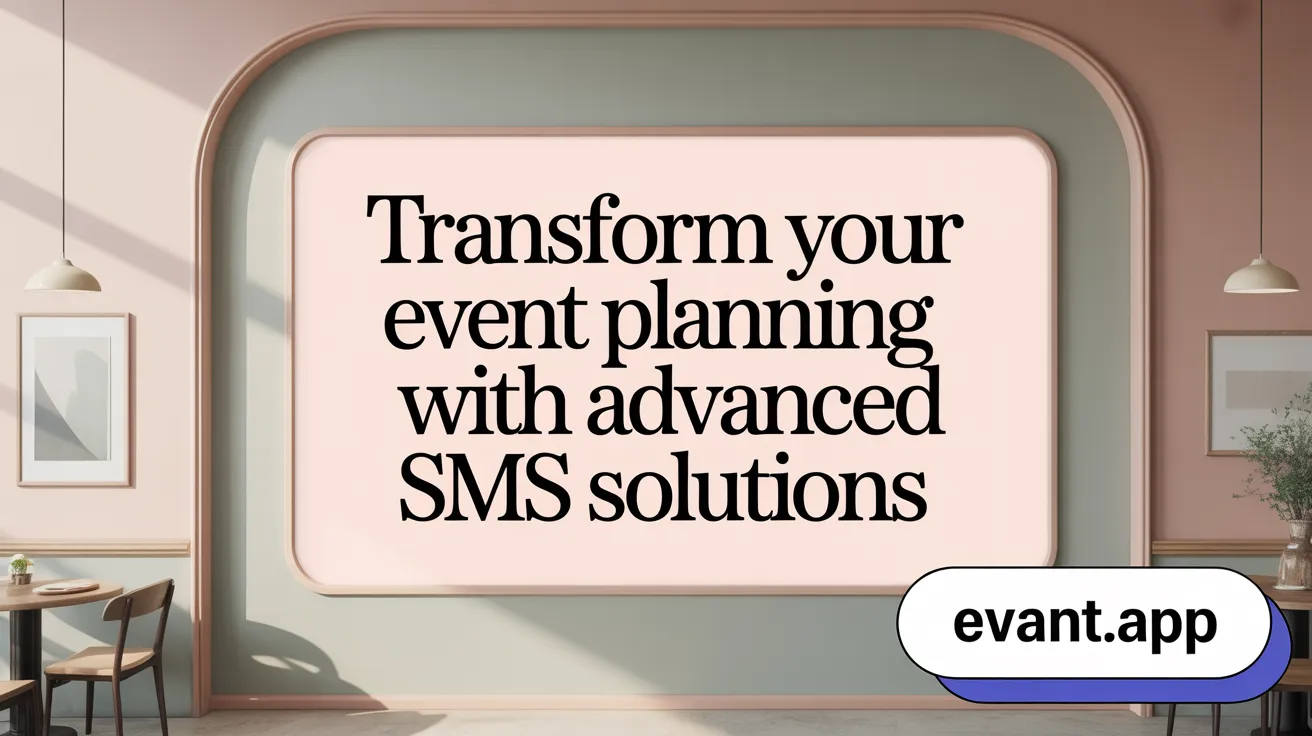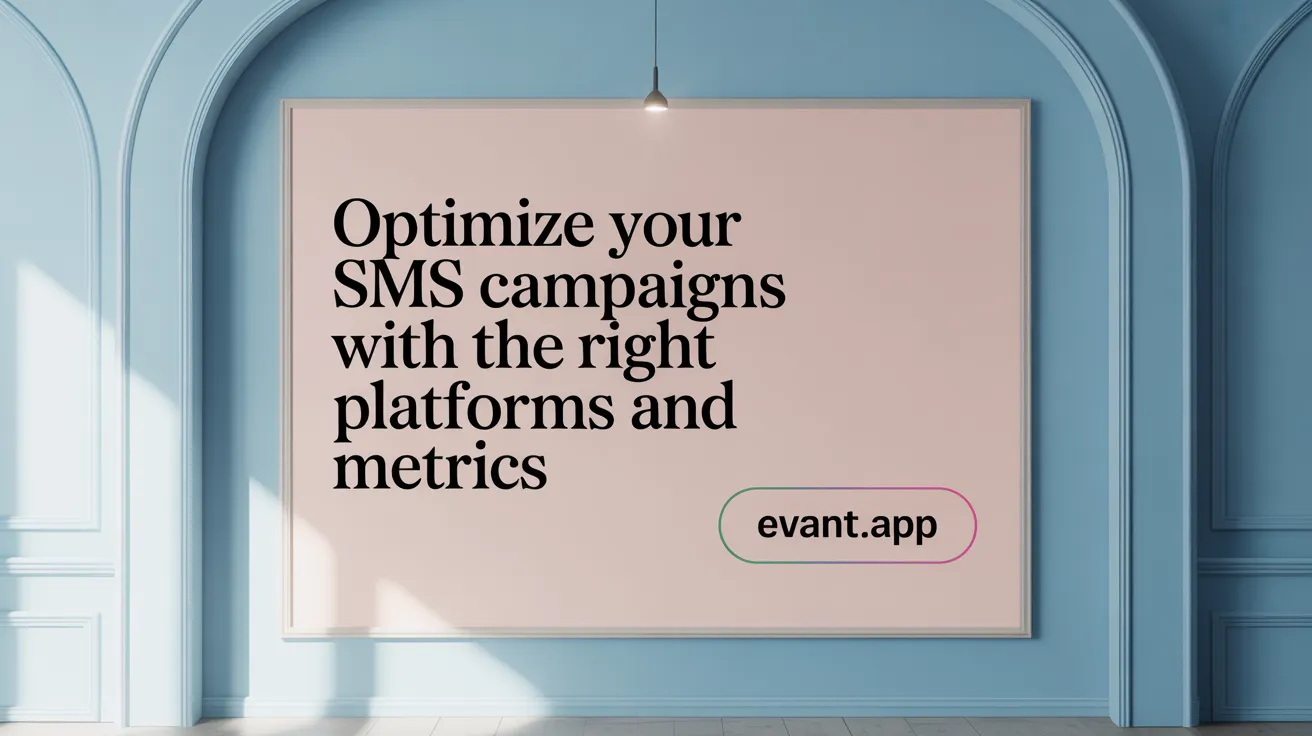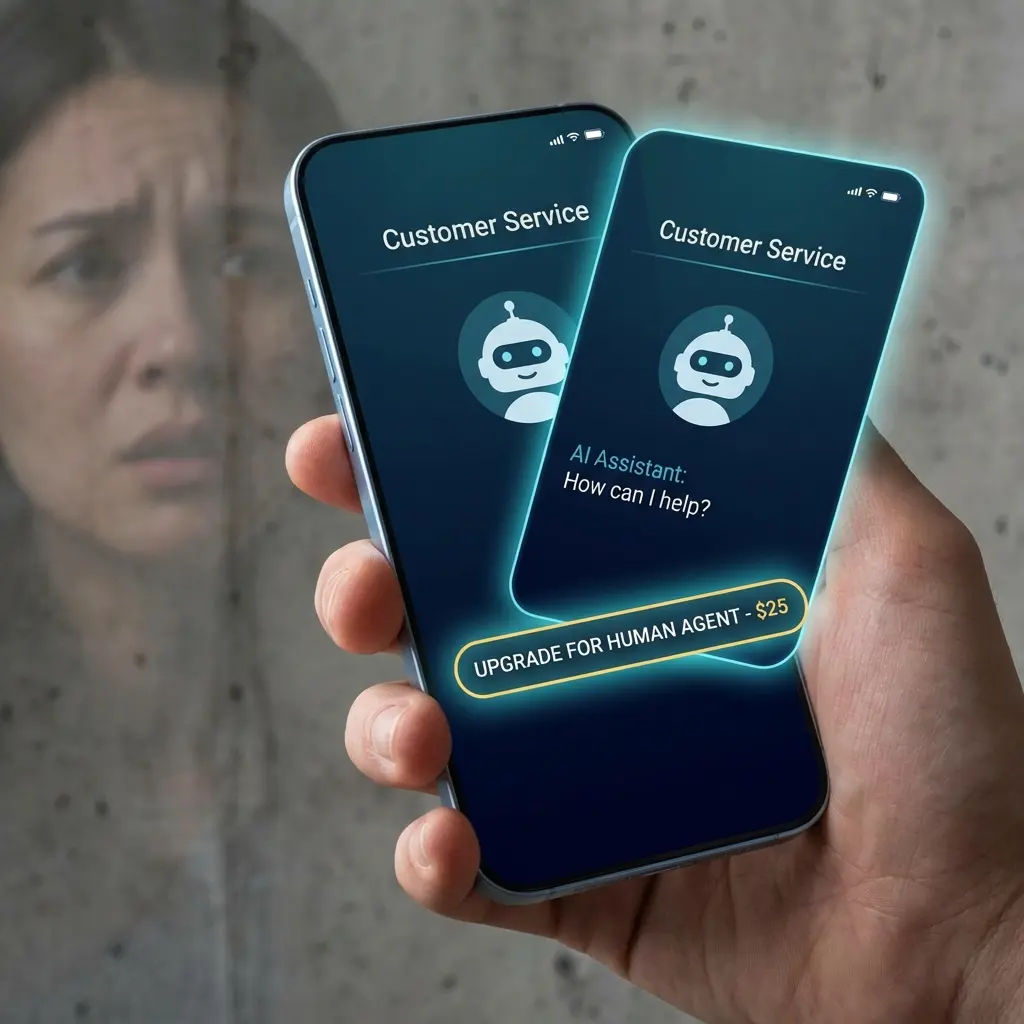Harnessing SMS to Transform Event Workflows
In an increasingly digital world, effective communication is the backbone of successful event planning and execution. Advanced SMS systems have emerged as a powerful tool that streamlines event workflows by enabling instant, personalized, and automated communication. This article explores how SMS technology optimizes event management processes, enhances operational efficiency, boosts attendee engagement, and introduces innovative practices reshaping the industry.
Optimizing Event Planning and Management with Advanced SMS Systems

How can advanced SMS systems optimize event planning and management processes?
Advanced SMS platforms dramatically improve how events are organized and executed. They enable instant, reliable communication with attendees and staff, ensuring that important updates such as schedule changes, emergency alerts, or logistical reminders are delivered immediately. Since SMS boasts a 98% open rate and messages are typically read within minutes, event organizers can reach participants effectively and promptly.
Personalization plays a significant role in engagement. By segmenting audiences based on behavior, preferences, or registration details, organizers can send targeted messages like exclusive offers, VIP updates, or tailored reminders. About 80% of consumers prefer personalized experiences, and customized messages can increase engagement significantly.
Automation of messages simplifies routine tasks. Pre-scheduled reminders—such as registration confirmations, session alerts, or follow-up surveys—help reduce no-shows and keep attendees informed. Promotions and event teasers sent via automated campaigns boost visibility and encourage participation. For example, timely SMS reminders have been shown to reduce no-shows by up to 50%.
Integration with event management platforms or CRM systems enhances efficiency. Platforms like Textellent or Mass Messaging tools support sending invitations, managing registrations, and coordinating staff. These systems can trigger personalized messages based on specific events or behavior, streamlining communication and reducing manual effort.
Furthermore, analytics tools embedded within SMS platforms provide insights into attendee responses, engagement levels, and campaign effectiveness. These data-driven insights enable continuous refinement of communication strategies, ultimately leading to more successful events.
Overall, leveraging advanced SMS features allows organizers to deliver engaging, timely, and personalized experiences that boost attendance, improve logistics, and create lasting impressions.
Key Features and Benefits of SMS Technology in Streamlining Event Workflows
What are the key benefits and features of SMS technology for streamlining event workflows?
SMS technology is highly effective for managing events due to its remarkable open rate of approximately 98%, significantly higher than email. This means attendees are more likely to see and respond to important messages promptly.
One of the main features of SMS workflows is automation. These workflows trigger messages based on specific events or times, such as registration confirmations, schedule changes, or feedback requests. This automation reduces manual effort and ensures timely communication.
Flexibility in real-time messaging allows organizers to send updates instantly, whether it’s last-minute changes or emergency alerts. This immediacy enhances attendee satisfaction and helps manage unforeseen circumstances effectively.
SMS platforms often integrate with other marketing and event management tools, enabling seamless coordination. For example, linking SMS with registration systems or calendar apps streamlines communication and operational efficiency.
Analytics tools provided by SMS platforms allow organizers to track engagement metrics like delivery rates, open rates, and responses. These insights help optimize future campaigns and improve overall event communication strategies.
In summary, SMS technology boosts efficiency and engagement by delivering timely, personalized messages, reducing manual tasks, and offering data-driven insights—making it an essential tool for organizing successful events.
Best Practices and Strategic Approaches for SMS Event Communication

How can audiences be segmented and content personalized to improve SMS communication?
Segmenting your audience allows you to send tailored messages that match each group's interests or behaviors. For example, attendees, speakers, and staff may each receive different updates relevant to their needs. Personalization extends beyond using names; it includes customizing messages based on past interactions, preferences, or registration details. About 80% of consumers prefer personalized experiences, which significantly increases engagement.
What is the best timing and frequency for sending SMS messages?
Timing is vital for maximizing open rates. Studies show the highest engagement occurs between 10 AM and 1 PM. Sending reminders too early or too late can reduce effectiveness. Additionally, avoiding message overload is important; too many messages can cause recipients to ignore or opt out. Scheduling key updates, countdowns, and reminders at strategic intervals—such as 24 hours and 1 hour before an event—helps maintain excitement without overwhelming your audience.
How can automation enhance event communication?
Automation tools streamline routine tasks like sending reminders, updates, and check-in instructions. Automated campaigns ensure messages go out at precise times, improving reliability and consistency. For example, automated appointment reminders can reduce no-shows and free staff to focus on other tasks. Platforms like Textellent and RingCentral support scheduling, segmentation, and analytics, enabling real-time monitoring and adjustments to your campaign.
Why is two-way communication important during events?
Two-way SMS enables attendees to ask questions, participate in surveys, or provide feedback instantly. It makes the event more interactive and engaging. Quick responses can resolve issues, gather insights, or conduct polls. For instance, organizers can send real-time updates or emergency alerts, improving attendee safety and satisfaction.
How to ensure compliance with privacy laws and offer opt-out options?
Respecting privacy laws, such as TCPA, is non-negotiable. Always obtain explicit consent before sending messages and clearly explain how recipients will be contacted. Including an easy opt-out option in every message—such as replying with 'STOP'—is essential. Tools within platforms like Drop Cowboy help manage subscriptions and ensure compliance. Regularly reviewing and updating your opt-in/out procedures maintains trust and legal adherence.
| Strategy Aspect | Best Practices | Benefits |
|---|---|---|
| Audience Segmentation | Use past data, behavior, and preferences to target messages | Increased relevance and engagement |
| Personalized Content | Tailor messages with names and contextual info | Higher response rates (up to 9%) |
| Optimal Timing & Frequency | Schedule messages during high engagement hours, space out frequency | Better open and click-through rates |
| Automation | Automate reminders, updates, and follow-ups | Saves time, reduces manual effort |
| Two-way Communication | Enable feedback, polls, and response options | Boosts engagement, collects insights |
| Privacy & Opt-outs | Use clear language, obtain consent, provide easy opt-outs | Maintains trust and compliance |
By combining audience segmentation, timely messaging, automation, interactive features, and privacy compliance, event organizers can significantly enhance communication effectiveness. These strategies lead to better coordination, higher attendance, and a more positive experience for all participants.
Enhancing Operational Efficiency and Engagement Through SMS Solutions
How can SMS-based solutions enhance operational efficiency and engagement during events?
SMS platforms provide a powerful way to streamline communication and boost attendee involvement during events. By automating reminders—such as registration confirmations, schedule updates, or last-minute changes—organizers can significantly decrease no-shows and confusion. These messages are delivered instantly and are usually read within minutes, ensuring important information reaches attendees promptly.
Targeted segmentation allows organizers to send personalized messages based on attendee data, such as preferences or past behavior. This relevance increases response rates, with studies showing SMS open rates can hit 98%, far higher than emails. Interactive elements like surveys and two-way texts allow real-time feedback, poll participation, or questions, fostering ongoing engagement.
During events, SMS can improve logistics by providing details like venue directions, session reminders, or emergency alerts. Post-event, messaging campaigns can gather feedback, promote future activities, and build lasting relationships. This continuous connection helps organizations create memorable experiences, increase satisfaction, and streamline overall event management.
By integrating SMS into their workflows, organizers achieve faster communication, reduced manual effort, and higher participant engagement, resulting in more successful, efficient events.
Common Applications and Use Cases of SMS Automation in Event Management

What are common use cases and applications of SMS automation in event management?
SMS automation plays a vital role in streamlining various aspects of event management. One of the most common applications is sending registration confirmations and reminders. Attendees receive instant confirmation of their registration and timely reminders about the event, which helps reduce no-shows and guarantees better turnout.
During the event, SMS is used for real-time updates and logistical communication. For example, organizers can send session reminders, notify about schedule changes, or announce emergency alerts promptly. This keeps attendees well-informed and engaged throughout the event.
Marketing promotions are another significant use case. Automated messages can promote ticket discounts, early-bird specials, or upcoming events. These targeted campaigns boost attendance and maintain high interest levels.
After the event, automated follow-up messages are critical for feedback collection and relationship building. Attendees can be asked to complete surveys, share their experiences, or receive exclusive offers for future events. This continued engagement fosters stronger customer relationships.
Internal team communication also benefits from SMS automation. Staff and vendors can receive important updates, VIP messages, or instructions directly, ensuring smooth coordination.
In summary, SMS automation in event management covers a wide range of applications from pre-event planning to post-event follow-up, making the overall experience more efficient and interactive.
| Application Category | Specific Use Case | Additional Details |
|---|---|---|
| Registration & Attendance | Confirmations, reminders | Reduce no-shows, improve flow |
| Marketing & Promotions | Ticket discounts, teasers | Increase engagement, boost sales |
| Event Updates & Emergency Alerts | Schedule changes, safety notifications | Enhance safety and responsiveness |
| Post-event Follow-ups | Feedback surveys, future event promotions | Build loyalty, gather insights |
| Internal & VIP Communications | Staff instructions, VIP greetings | Ensure smooth operations |
Understanding and leveraging these automation applications can significantly enhance an event's success, attendee experience, and operational efficiency.
Innovative Trends and Emerging Techniques Leveraging SMS in Event Workflows

What are the latest trends and innovative methods for leveraging SMS to improve event workflows?
Recent developments in SMS technology are making the communication process for events more dynamic and efficient. One major trend is integrating SMS with AI chatbots to enable automated responses. This allows attendees to get instant answers to common questions, improving their experience and reducing the workload on event staff.
Another innovative technique involves contactless mobile ticketing and check-ins. By using SMS for ticket delivery and entry verification, events can streamline the registration process, minimize physical contact, and enhance safety.
The incorporation of multimedia content into messages is also gaining popularity. Sending images, videos, or QR codes directly through SMS increases engagement, provides valuable information at a glance, and makes communication more interactive.
Real-time analytics are now being used to monitor how attendees interact with SMS campaigns. Event organizers can adapt their messaging strategies on the fly, optimizing timing, content, and targeting based on live data to maximize effectiveness.
Location-based targeting enables sending geo-relevant messages, such as parking locations, nearby attractions, or special offers, enhancing attendee involvement. Live polls and interactive surveys delivered via SMS during events further promote engagement and gather instant feedback.
Innovative SMS methods are also utilizing carrier-approved short codes and customized templates for quick participation and uniform messaging. Combining these practices with comprehensive data analysis and multisystem integrations transforms SMS into a versatile tool for improving logistical efficiency, attendee satisfaction, and overall event success.
Overall, these advancements illustrate how SMS continues to evolve as a crucial, high-impact element in modern event management, driving greater engagement and operational smoothness.
Implementing and Managing SMS Workflows: Platforms and Metrics

Choosing user-friendly SMS platforms like Textellent and Mozeo
Selecting the right platform is crucial for effective SMS workflow management. Platforms such as Textellent and Mozeo are known for their scalability and ease of use, offering features like automation campaigns, segmentation, analytics, and customizable templates. These tools enable businesses and event organizers to create targeted, efficient messaging sequences without extensive technical knowledge.
Designing triggers, message content, and timing
An effective SMS workflow starts with clear triggers—such as sign-ups, purchases, or event registrations—that initiate message sequences. Content should be concise, valuable, and include a clear call-to-action to maximize response rates. Timing is vital; research indicates that open rates are highest between 10 AM and 1 PM. Personalization beyond using the customer’s name, such as referring to past interactions or preferences, significantly boosts engagement.
Automation of appointment and event reminders
Automated reminders help reduce no-shows and keep participants informed. For example, appointment follow-ups can be scheduled 24 hours and one hour before the appointment. Event organizers use SMS for delivery confirmations, schedule updates, or emergency alerts. Integration with platforms like RingCentral allows for two-way communication, enabling recipients to reschedule or confirm directly via text.
Monitoring campaign performance with analytics and A/B testing
Regularly tracking metrics such as open rates, click-through rates, and opt-out rates helps refine messaging strategies. Tools within platforms like Textellent facilitate analytics, guiding improvements. A/B testing different message versions can reveal what resonates most with the audience, thus increasing engagement rates and overall success.
Ensuring compliance with regulations and managing opt-outs
Compliance, especially with laws like TCPA, is essential. Platforms such as Drop Cowboy provide features to manage consent, opt-in, and opt-out procedures. Respecting user privacy and offering easy unsubscribe options maintain trust and legal adherence. By following best practices, organizations ensure their SMS campaigns are both effective and compliant.
Embracing SMS for Seamless Event Success
Advanced SMS systems have become indispensable in modern event management by combining automation, personalization, and real-time communication. Their unmatched open and response rates ensure messages reach attendees effectively, reducing no-shows and fostering engagement throughout the event lifecycle. Integrating SMS solutions into event workflows streamlines logistical coordination, enhances operational efficiency, and facilitates meaningful attendee interactions. By adopting best practices, leveraging innovative technologies, and continuously analyzing campaign performance, event organizers can unlock the full potential of SMS to deliver memorable, successful events with minimal manual effort and maximum impact.
References
- How To Set Up an SMS Workflow For Text Message ...
- How to Create an Effective SMS Automation Workflow
- Event Text Messaging: Your Go-To Resource
- The Ultimate Guide to SMS for Event Management
- Mastering SMS Marketing for Event Planning: 6 Proven ...
- Event Text Messaging
- Streamline operations: Implementing SMS for appointment ...
- How to Automate Workflows With Business Text Messaging
- How SMS Event Marketing Can Drive Attendance and ...
- Boost SMS customer engagement with these 13 proven ...
Related Blogs


How Community Churches Should Leverage SMS to Boost Engagement
Michael PedoeemStruggling with low church attendance? Discover how to leverage SMS to reach 98% of your congregation instantly and review the top 5 church communication platforms.


SMS for Churches: A Guide to Better Engagement
Michael PedoeemLearn how SMS for churches can boost engagement, improve communication, and streamline event management. Discover best practices for church texting today.
Ready to transform your community










